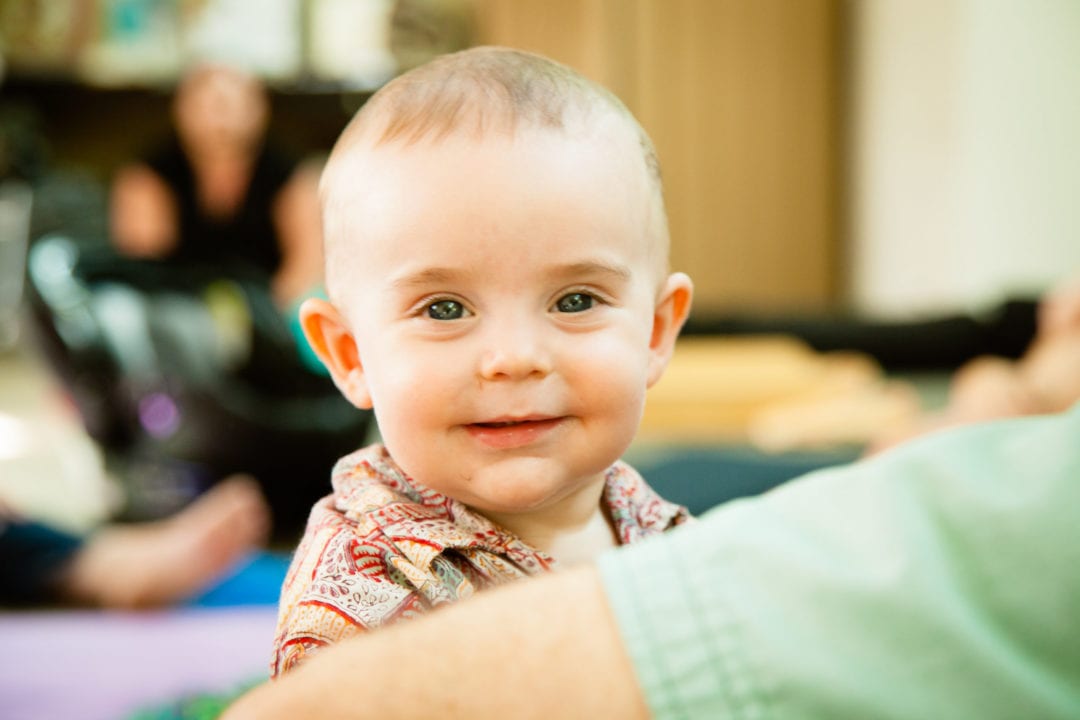
4 – 12 Months
The infant stage of child and parent
At about 4 months of age, most babies begin to smile on volition, laugh, gaze with reciprocity, and refine their cues. Parents have been practicing the fullness of parenthood. Communicating with your baby can be playful, but it’s also important in building a partnership in the caregiving needs of a baby. Remember to let baby focus on their body, and their environment. And, when there are needs to be met or places to go you include this in your conversation with baby.
Parents might now understand the different cries, feeding schedules, and sleep patterns of their new baby. Parents can anticipate the many needs of this new being, and might even begin to restore their energy output of the first three months. Babies have experienced enormous growth since birth. In fact, a baby may double their weight by 5 months.
A baby’s core strength is increasing and you may notice movement toward rolling over from back to tummy. Tummy time is more comfortable and enjoyable for babies who can roll from back to tummy, hold their head up, and roll again to back time. They will begin to kick their arms and legs with intention and with pleasure. Trust your baby to know what their bodies are ready for. Most of the time, a baby’s stage of development can’t be rushed or taught. Parents may be eager for their babies to do more, but let your baby guide you on their readiness, and trust that they are doing just what they need to do for their physical and cognitive growth.
At 8 months, a baby may experience a noticeable reaction to separation, or interaction with others. There are many times throughout the 0-3 years where there is tension around separation and attachment. As the first 12 months progress, and weight triples from birth, you will witness rolling, sitting, crawling or walking. As baby learns new skills, there is often an emotional reaction that includes joy as well as tension, and you might see this in separation.
During the first year, a baby begins to understand certain words and phrases. Their ability to explore the environment is quick and hands on. This is a time to keep your baby in clothes that are comfortable and made for movement, not restriction. It is also when baby proofing is essential for safe baby. It helps to create at least one space which both you and baby can count on to be infant toddler appropriate! Parents begin to have a real and visceral sense that their infant is becoming a young tot as the first year inches to the next.

